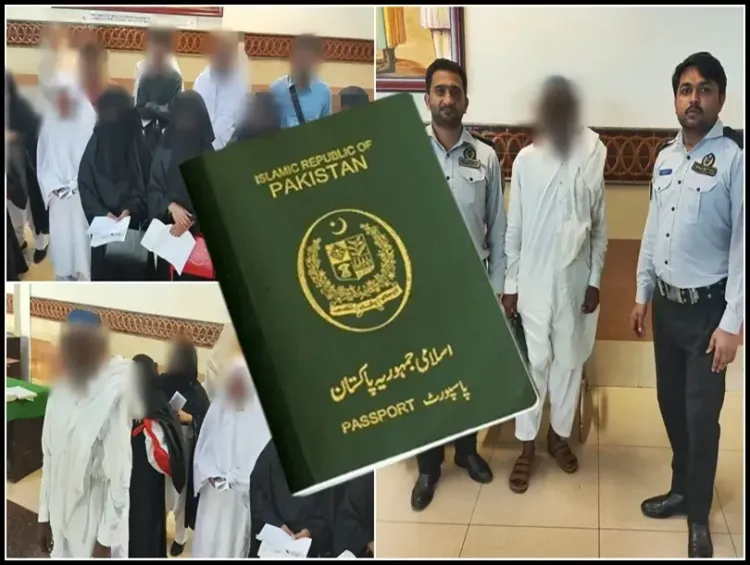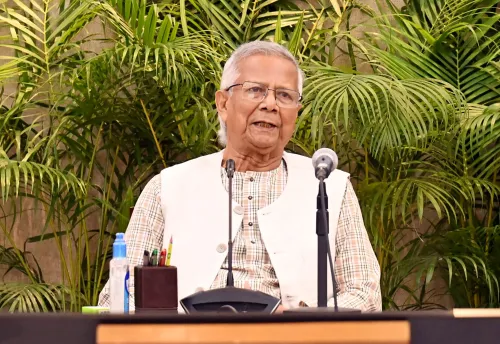Pakistan Takes Bold Step to Outlaw Begging Amid Global Backlash

Synopsis
Key Takeaways
- Pakistan proposes to criminalise begging.
- Organised begging defined in new legislation.
- Foreign nations raised concerns over Pakistani beggars.
- Increased scrutiny of passengers traveling abroad.
- Government response to international pressure.
Islamabad, Jan 30 (NationPress) The government of Pakistan has taken decisive action to criminalise begging after receiving numerous complaints from international communities, stemming from the involvement of thousands of Pakistanis in begging and illegal activities abroad, leading to significant global embarrassment and visa restrictions for the nation’s travelers.
In this initiative, the Interior Ministry of Pakistan proposed to include the term “organised begging” in Section 3 of the ‘Prevention of Trafficking in Persons (Amendment) Bill 2024.
Foreign nations, particularly those from the Gulf Cooperation Council (GCC), Iraq, and Malaysia, have expressed concerns regarding the rising incidents of Pakistani citizens engaged in begging within their borders.
Pakistan's embassies have called for stringent measures, as numerous individuals traveling for Haj, Umrah, and various religious pilgrimages have been implicated in begging and criminal activities.
The proposed amendment underscores the issue, asserting the need for legal action against it.
According to the draft, “The agents and gangs involved in this practice easily evade prosecution since begging is not classified as a crime under the laws governing the Federal Investigation Agency (FIA). The seriousness of this matter necessitates the urgent criminalisation of beggary,” it reads.
Furthermore, “Organised begging involves actions where individuals are lured, coerced, or manipulated, intentionally or through deceit, into soliciting or receiving alms,” the bill elaborates.
The Pakistani government has been compelled to address this issue seriously after many citizens were caught begging in Saudi Arabia. The Saudi authorities urged Pakistan not to send individuals who beg, are ill, or lack skills to their nation. Recently, around 4,300 beggars were placed on a no-fly list, and Pakistan assured the Saudi government of strict measures against offenders.
In recent times, hundreds of Pakistani nationals have faced deportation from Gulf nations, primarily for begging and related illegal activities.
On January 15, three beggars were apprehended and deported from Saudi Arabia, while another was arrested upon returning from Umrah for passport forgery.
The Pakistani government regards this issue as interconnected with human trafficking and human smuggling, instructing airport officials to be alert during passenger clearance.
As per the guidelines, an effective profiling system for passengers traveling from Pakistan to countries such as Azerbaijan, Senegal, Kenya, Saudi Arabia, Russia, Ethiopia, Egypt, Libya, Iran, Mauritania, Iraq, Qatar, Kuwait, and Kyrgyzstan is to be implemented promptly.
Heightened scrutiny, profiling, and monitoring efforts are also underway for travelers hailing from regions like Gujarat, Sialkot, Gujranwala, Bhimber, Jhelum, Toba Tek Singh, Hafizabad, and Sheikhupura.










